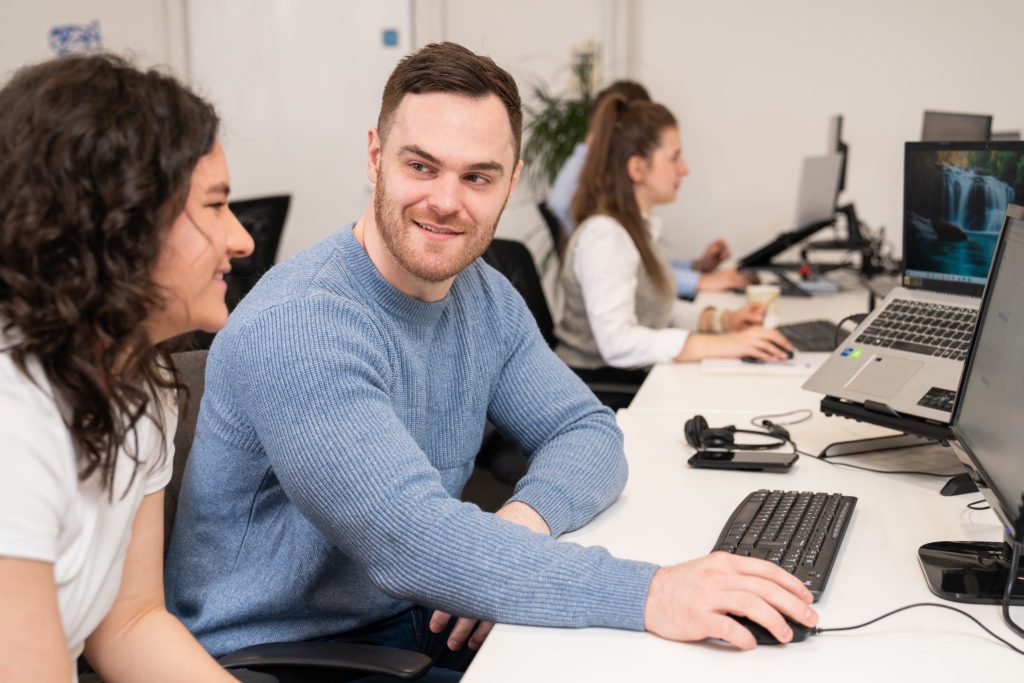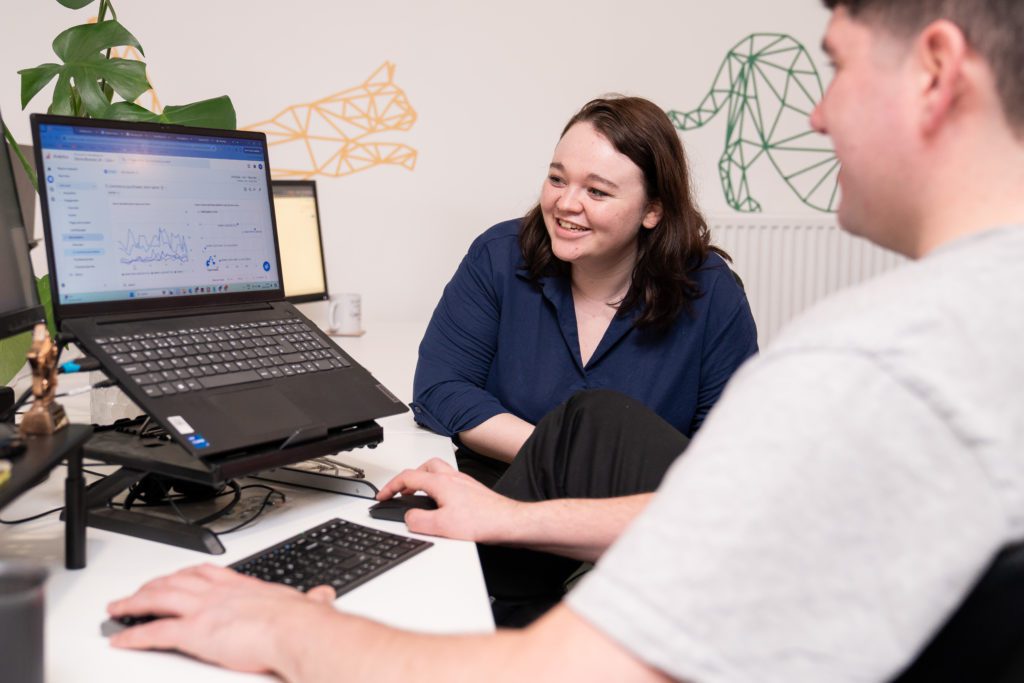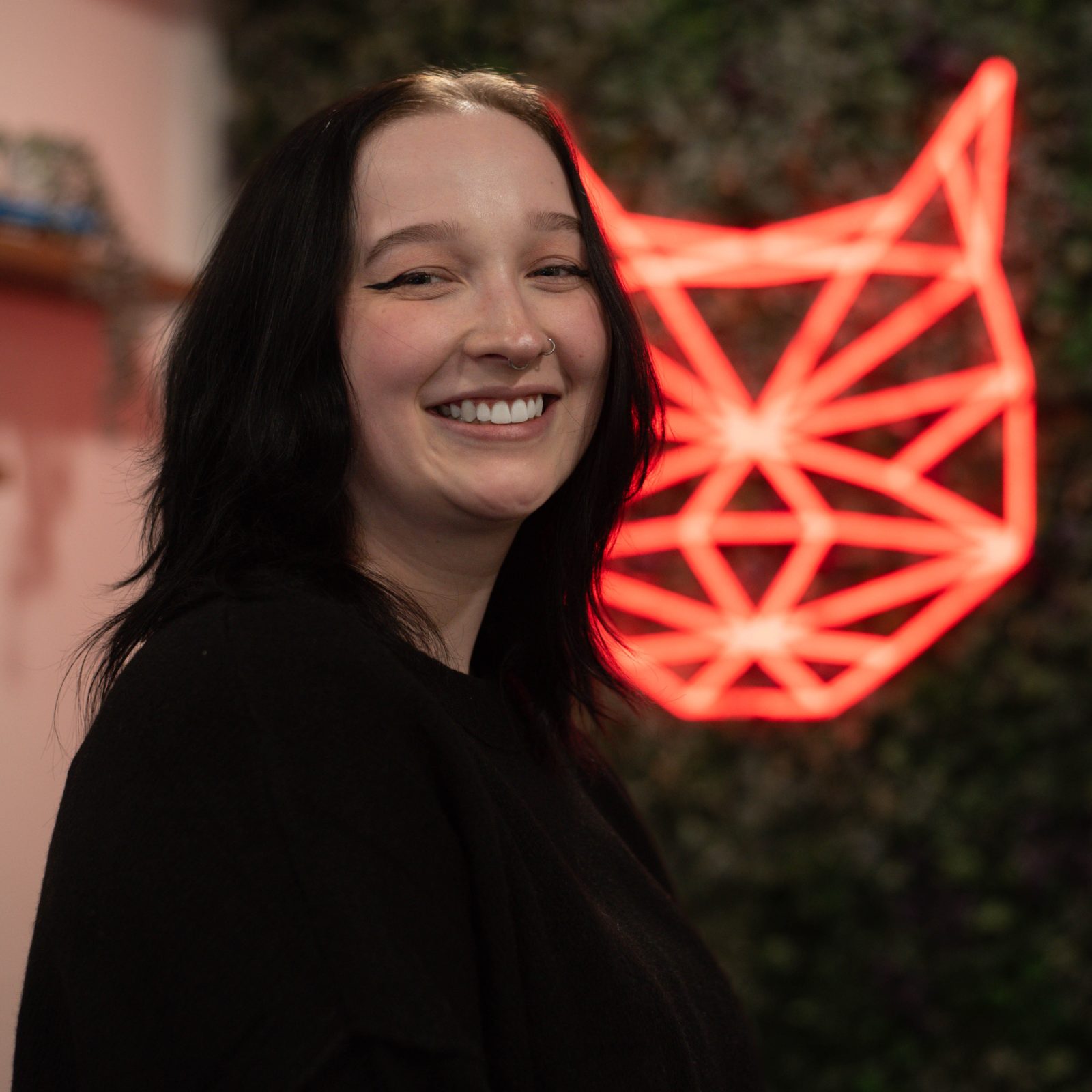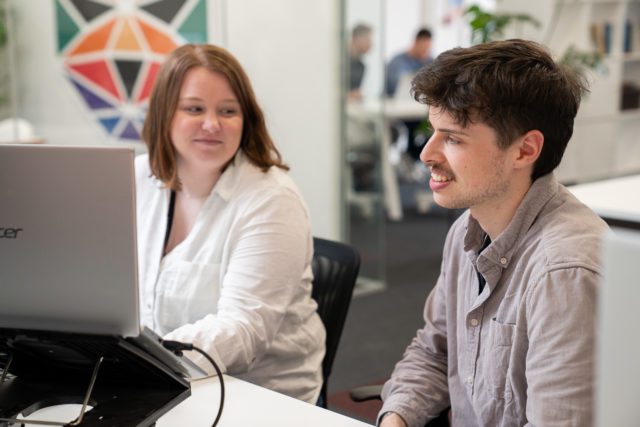Search intent (also known as user intent) is the goal of the user when they search a query on Google. This may be to make a purchase, find information, or to find a specific website or page. In this blog, we discuss how important search intent is in SEO and whether or not it plays a role in how Google ranks content. So, let’s get started, is search intent a ranking factor?
Search intent is an important ranking factor. You can do everything right in terms of SEO and content optimisation, but if your page does not match the intent of the keyword and therefore the intent of the user, it is unlikely to rank well.
Read on to learn more about search intent and how to optimise your content to suit the different types of intent.

Based on their recent guidelines, some would say that Google is “obsessed” with search intent, making it a key ranking factor. Simply put, if you don’t satisfy the intent of a keyword, you won’t rank for it. Other ranking factors, such as backlinks and high-quality content still matter, but search intent trumps it all.
Your webpage could be incredibly well written, featuring strategic keywords, links, visuals and everything else that you would expect to have a positive impact on SEO rankings. But, if the search intent is wrong, it’s very unlikely that your page will rank highly.
For example, you could publish an incredibly well written blog targeting your chosen keyword, but if the intent of the keyword is transactional, your blog likely will not rank for that keyword as it’s not explicitly selling anything.
In other words, Google wants to rank pages that actually answer the searcher’s query, and with the same intent. We go into more detail about the different types of search intent below, along with some examples to help you understand why they’re so important.
The different types of search intent are informational, navigational, commercial, and transactional. When optimising or creating webpages, the keywords you choose must match the search intent of your user.
Informational search intent means that people are looking for an answer to a question or query. Often, blogs and other informational pages will rank here. For example, the keyword “What is search intent” has an informational search intent, and the corresponding pages ranking for this keywords are predominantly blogs answering this question
A navigational search intent indicates that a user is looking for a specific website or page. E.g. “Facebook login” – a user searching this term is looking for the login page for Facebook. Therefore this has a navigational intent, and pages that don’t meet this intent will not rank well against it.
With a commercial search intent, users are looking to investigate brands, services and products. They may be interested in making a purchase or converting, but aren’t yet ready to make the jump to transactional. They’re still exploring their options. For example, “Best coffee UK” (and similar shown below) have a commercial intent as users want to explore their coffee options.
If we take the keyword “Best coffee London UK”, we can see that Google returns a number of list and comparison articles to help users make a decision. This is different from an informational intent, as users require information about specific brands and products.
A transactional intent is when a user is ready to convert. They want to make a purchase, book an appointment, hire a tradesman etc. An example of this would be “Buy used cars online”. Users are clearly looking to purchase a used car online; their intent is obviously transactional. The pages that rank for this keyword match the intent perfectly.
Learn more about keywords and why they are so important in SEO in our recent blog.
Google developed a language model that deciphers a user’s intent from the words they use. The model looks at the way a query is worded, as well as synonyms of the query to return the most relevant results.
This model also analyses the language used on relevant web pages to ensure a good match is returned – even if the same language is not used. For example, if a user searches “change laptop brightness”, but the relevant website uses the language “adjust laptop brightness”, Google recognises the synonym and intent of the page, and will rank the page for that query.
Similarly, Google uses semantic keywords to better understand what a page is about, thus helping to deliver more relevant search results. So, with our “change laptop brightness” example above, semantic keywords might include:
The only way to determine the search intent of a user is to determine the intent of a keyword. The best way to do this is by using a keyword research tool like SEMrush or Ahrefs.
When you search for relevant keywords on these tools, they also provide you with their best guess at the search intent of any given keyword. These results aren’t always 100% accurate, however, so it’s best to also do a quick manual search to confirm. Simply search the keyword you have chosen in Google and determine for yourself what the intent of that keyword is.
Despite not being 100% accurate, the tools are still useful for determining search intent en mass. If you’re doing research for more than one page, or perhaps at the start of a new campaign, the search intent will guide you in the right direction before making your final choices, at which point you should check the intent manually.

When you’re ready to begin optimising content, keep in mind what your users are actually looking for. Review your chosen keywords again, and keep in mind the intent of those keywords.
When optimising for search intent, you should consider the Three Cs and ensure that your content is aligned with what currently ranks. They are:

If you’re looking for tailored advice on selecting the right keywords for your website, get in touch today to arrange a free consultation and see how our expert SEO and content teams can help you punch above your weight online.

Founder
Our founder, Will Hitchmough, worked at a number of high profile Sheffield Digital Agencies before founding Wildcat Digital in 2018. He brings an extensive knowledge of all things related to SEO, PPC and Paid Social, as well as an expert knowledge of digital strategy.
Digital Marketing can be a minefield for many businesses, with many agencies ready to take your money without knowing how to deliver results. I founded Wildcat Digital to deliver digital success to businesses with smaller budgets in a transparent way.

Head of Growth
Rich joined us in May 2024 to head up our growth team. With years of experience helping other agencies to grow, Rich joins us at an exciting time as Wildcat is working on a five-year plan to become one of the biggest agencies in the UK.
Outside of work, Rich is a father to three children, which keeps him very busy! He’s also recently started running again to keep fit and loves a bit of DIY.

Head of Digital
Sarah joined Wildcat in January 2025, bringing over seven years of SEO expertise to the team. With a background in Fashion Communication and Promotion, she has worked both in-house and at agencies, covering a range of digital marketing specialisms before focusing on SEO.
Passionate about all things search, Sarah thrives on helping brands grow their online presence.
Outside of work, she enjoys walking her dog, running, and shopping for vintage clothing.

Office Manager
Amelia joined Wildcat Digital in January 2025, bringing extensive experience in HR, Health & Safety, Facilities Management and IT Support. Previously an Operations Manager at The University of Sheffield, she has a strong background in creating efficient and well-organized work environments.
Specialising in HR, Health & Safety, and Facilities Management, Amelia ensures the Wildcat Digital team has the resources and support needed to thrive. Whether managing office operations, maintaining compliance, or fostering a positive workplace culture, she keeps everything running smoothly.
Outside of work, Amelia loves trying new things, traveling, camping, and walking. She also enjoys socialising and exploring new places with friends and family. Her adventurous spirit and proactive approach make her a valued member of the team.

Client Success Coordinator
Siena joined us in 2023 with a background in sales and digital marketing. She leads on client relationships across the company, ensuring that our customers are happy throughout their journey with us, from their initial consultation through to onboarding and beyond.
Outside of work, Siena enjoys travelling and getting stuck into the local culture. She likes to make the most of her experiences and particularly enjoys watching sunrises and sunsets from beautiful locations around the world.

SEO Account Director
Paul has a strong background in SEO, having previously founded and ran a successful eCommerce business, as well as running a personal blog that achieves an average of 17K users per month. Paul’s knowledge of SEO is extensive, with a strong emphasis on client handling and technical SEO.
Outside of work, Paul enjoys spending time with his family and staying active with weight lifting and combat sports.

Team Lead & Technical SEO Account Manager
With a degree in Computer Science and SEO experience dating back to 2017, Dariusz has a wide range of SEO skills and knowledge. His specialist knowledge of Technical SEO has firmly landed him the title of Wildcat’s Technical Wizard, and he has recently taken on the responsibility of Team Leader for the Panthers Team.
In his spare time, Dariusz loves hiking, experimenting and trying new coffees and loves learning new things. He is currently learning more about CRO and AI and how this could benefit our clients.

Team Lead & Senior SEO Account Manager
With a background in sales, Molly is a natural Account Manager, brilliantly handling any issues that come her way. Having joined us as a Digital Marketing Executive, and working part-time through her final year of University, Molly is a shining example of how hard work pays off. She is now an SEO Account Manager with a particular interest in Content and Client Management.
In her spare time, Molly loves to get out in nature, hiking and exploring the Peak District. She also loves cooking and likes to unwind with a bit of yoga.

PPC Team Leader
Libby joined Wildcat in 2021 as our first PPC hire. With a degree in Digital Media Production, a Master’s in Digital Media Management and previous experience in Social Media Management, Libby hit the ground running and has since climbed the ranks to Senior PPC Account Manager and has a particular interest in the eCommerce sector.
Outside of work, Libby likes gaming, and cooking and likes to keep active by lifting weights.

Senior SEO Account Manager
With a degree in Film and TV production, and a varied career history, Jamie made the move to marketing with a Masters degree in Digital Media Management. He has since worked in SEO at Agencies across Sheffield, before joining Wildcat and working his way up to SEO Account Manager. Jamie has a particular interest in backlinks and Digital PR and has recently gained a client a valuable backlink from Forbes!
In his spare time, Jamie is an avid foodie and loves trying new restaurants and cuisines. He also loves to travel and spent a year travelling to Australia after university.

SEO Account Manager
Jasmine joined Wildcat in 2022 with a strong background in SEO and Account Management. At the time, she was finishing up a Level 4 Apprenticeship in Digital Marketing from the Chartered Institute of Marketing, and has since worked her way up to SEO Account Manager. Jasmine excels at content writing and promotion, and particularly enjoys finding creative ways to join the dots on multi-channel campaigns.
In her spare time, Jasmine volunteers at a charity, helping combat loneliness & social isolation experienced by older neighbours. Outside of Wildcat, she owns a catering company, Savery Grazing, creating delicious grazing tables & platters for a range of events. She also loves skiing and exploring the Peak District.

Senior SEO Executive
After spending ten years managing businesses, restaurants, cafes and event spaces across Sheffield, Jon decided to change careers and joined Wildcat as an SEO Executive in 2022. He especially enjoys the client management side of the job, helping them to understand digital marketing and ways in which they can build their business’s presence online.
Outside of work, Jon likes to keep fit with running, badminton and football, and also loves music.

Senior SEO Executive
Andy joined Wildcat in 2023 after starting his digital marketing career in-house for a local Sheffield company. Since joining, he has developed a strong interest in Technical SEO and has strong skills in Account Management.
Outside of work, Andy loves music and plays in a couple of bands. He also enjoys rock climbing, cycling, photography and good food.

PPC Executive
Before joining Wildcat, Tom worked across different industries, building skills in sales and customer service. He later developed a passion for digital marketing whilst working on personal marketing projects and freelance ventures, and gained numerous certifications in PPC and Social Media.
Outside of work, Tom enjoys staying active by going to the gym and hiking. He also loves travelling and motorbiking.

Senior SEO Executive
Kezia joined us in July 2024 after completing a CIM Certificate in Digital Marketing and gaining experience in Content SEO at another Sheffield agency.
In her spare time, Kezia loves to get outdoors, bouldering, hiking and travelling.

Senior PPC Executive
Alex joined Wildcat Digital in December 2024 as a Senior PPC Executive, bringing a strong background in Paid Media, Paid Social, and Programmatic advertising. With a degree in Business & Marketing and Google Ads certifications, she has the expertise to craft high-performing campaigns that drive results.
Before joining Wildcat Digital, Alex worked at two leading agencies in Leeds, honing her skills across various digital advertising platforms. Her analytical mindset and strategic approach help businesses maximize their online presence and advertising budgets.
Outside of work, Alex enjoys spending time with her dog, Lola, and going on walks with her dog walking group. She’s also a keen footballer and loves playing five-a-side whenever she gets the chance. Her enthusiasm and team spirit make him a great addition to the Wildcat Digital team.

SEO Executive
Amy joined Wildcat in 2024 with a background in journalism, having worked as a News Editor and Editor-in-Chief at The Sheffield Tab. She is naturally interested in Content SEO and research, so will no doubt prove to be a content power-house.
In her spare time, Amy loves watching crime shows, listening to music and hanging out with her dog, Eddie!

SEO Executive
Reiss joined the Wildcat Digital team in July 2025, with a background in journalism and digital content, Reiss brings both creativity and technical know-how to the team.
After graduating with a Journalism Studies BA from the University of Sheffield, where he also served as Games Editor and Deputy Editor for the student-run newspaper – Reiss jumped straight into the world of climate tech communications.
Outside of work, Reiss loves crochet, swimming, playing guitar, and diving into both video and board games. He’s always up for picking up new skills and trying new things – which makes him a perfect fit for our team!

Content & Proposal Writer
Liv joined the WildcatDigital Team in June 2025, with a strong background in financial admin and client care, Olivia is taking an exciting step into the creative world – and we’re so glad she’s doing it with us!
She’s currently studying content creation through her apprenticeship with Wildcat, and already bringing fresh energy and creativity to the team.
Outside of work, Olivia runs her own BIAB nail business, loves reformer Pilates, long walks, and is a member of a competitive dance team.

January 26, 2026
We made it to the end of January! One month into 2026, and it feels like a lot has changed.…

January 23, 2026
Many businesses assume that Author and Meet the Team pages are simply a nice way to showcase the people behind…

December 17, 2025
As we enter into 2026 and reflect back on the year as business owners and digital marketers, we can’t help…